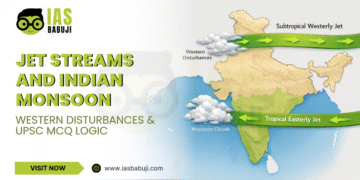To begin with, in this article, we will be discussing the Agriculture Syllabus for UPSC. In the article, we have covered the information of the UPSC agriculture optional syllabus and topics. So, read the article and know more about the agriculture syllabus for the IAS exam. Before the article, we have added information on the other subjects and book details.

UPSC exam Highlights
Before understanding the optional agriculture syllabus for UPSC, we will look into the IAS exam details. The IAS exam is conducted by the UPSC every year. Further, we see many students applying for the exam, and many leave their jobs to study for the exam. However, only a few make it to the end as it is the most challenging exam in India. First, we talked about the IAS exam procedure, the preliminary, the main exam, and the interview round. Then, talking about the prelims objective type and the main exam consists of descriptive type. All those who clear the main exam are allowed to give the interview round.
Besides, you can join the classes, which will help you understand the concepts; you will also get study materials. But, you have an opportunity to study on your own. If you are confident with your skills and can cover the complete syllabus, go for the self-study option. However, we have seen people clearing the exam in both methods. So, it only depends on your hard work and dedication. If you want to join classes, we have added the complete details of the lessons present in the different cities.
If you want to know more about the IAS exam and details related to the UPSC, you can visit the official website.
Why agriculture as optional?
We all want to know the reason why this subject? So, before choosing the optional topic, one must also understand the pros and cons. Furthermore, one must also understand their skills and syllabus before selecting the optional case. Below we will help you by giving some advantages of taking this subject as optional.
- In the first place, subject syllabus is short and it can prepared easily. Further, it can be easily managed with other subjects.
- Then, Paper II of Agriculture optional is similar to that of Botany paper II. So, it will help you with the exam preparations.
- Some of the topics of agriculture are helpful in preparing for general studies paper. So, it will help you prepare directly for the geography and economy.
Agriculture Optional Syllabus
Below we have added the complete details of the UPSC agriculture optional syllabus.
- Physical and social environment as factors of yield dispersion and production. Environmental change – worldwide shows and global drives. Greenhouse effect and global warming. Advance tools for ecosystem analysis and Remote sensing (RS) and Geographic Information Systems (GIS).
- Cropping patterns in various agro-climatic zones of the country. Impact of high-yielding and short-duration varieties on shifts in cropping patterns. Concepts of various cropping and farming systems.
- Important provisions and extent of different kinds of forestry ranches like social forestry, agro-forestry, and normal forests. Engendering of forest plants. Forest items. Agroforestry and value addition. Conservation of forest flora and fauna.
- Weeds, their characteristics, dissemination, and relationship with different yields; their duplications; social, natural, and synthetic control of weeds.
- Farm management, scope, essentials and characteristics, farm planning. Optimum resource use and budgeting.
- Soil conservation, integrated watershed the board. Soil disintegration and its administration. Dryland farming and its concerns. Innovation for stabilizing farming creation in rainfed regions.

Paper 2
Then, look into the topics for the paper. Below we have added some of the issues. Besides, we have provided the link that will give you the complete syllabus.
- Seed creation and handling advances: Seed confirmation, seed testing, and capacity. DNA fingerprinting and seed enlistment. Job of public and private areas in seed creation and advertising. Licensed innovation Rights (IPR) issues, WTO problems and its effect on Agriculture.
- Proteins and plant colors; photosynthesis-current concepts and elements affecting the cycle, vigorous and anaerobic breath; C3, C4, and CAM components. Starch, protein, and fat digestion.
Click on the below link for the complete agriculture syllabus/topics for the ias exam. You can also download it and refer while studying for the exam.
Important Topics to be covered
Further, below we have added some essential topics of the Agriculture Syllabus for UPSC.
- Agronomy – Some of the important topics are cropping patterns in different agro-climatic zones of the country; Impact of high-yielding and short-duration varieties.
- Seed production and technology: It is one of the easiest topics. So, try to cover everything from this section. Yiu can also make some important points and study during the exam.
- Plant breeding and Plant physiology: In this section, try to cover the topics from Plant Physiology’ by Sinha and Pandey and ‘Plant Breeding Principles and Methods’ by BD Singh.
- Agriculture economics – It is also one of the important topics. For this topic, you can refer to the textbooks. Many websites will provide yiu with important topics.
- Food production and nutrition management: Then, in this section, it overlaps with GS – III paper. So, it will be helpful with your exam preparations. Further, some of the essential topics are nutrition deficiencies and protein malnutrition are asked.
- Ecology – It is also one of the important topics. Some of the important topics in this section are environmental pollution, agro-ecosystem, and its impact on crop productivity.
- Then, cell biology, if you have a complete degree in agriculture, this concept will be easy to cover the syllabus.
Note – Get all the details of the IAS exam like the IAS exam syllabus, pattern, tips, books, and other essential information. Read More.
Important Tips for the Exam
Now you have complete details of this subject. Below we will help you by giving some tips for the exam to cover the UPSC agriculture optional syllabus.
- Know the Syllabus – It is one of the most important things. One must understand the complete syllabus of the paper and also the paper pattern. For this, you can refer to the previous year’s question papers. By referring to the previous year’s papers, you will understand question format, marks, and trending topics.
- Know which are the best books, to cover the complete syllabus referring to the best books is important. Don’t waste your time in reading the wrong books. So, know which are the best books and try to study from them.
- Further, one must revise regularly, and it will help you to remember things well. Once you complete a certain portion, try to revise. Then, one must also give mock tests it will give you the feel of the final year paper.
- Then, one must also have an answer writing practice. Only studying for the exam will not help you. So, it would help if you also practiced writing the answer. You can keep time and write the answer with limited words and write the important points with limited words.
- One needs to give time to all the subjects. So, you can prepare a timetable and give time for all the subjects. Then, give some time for revision and for the mock tests. Then, one must also read the newspaper it will also help y

Conclusion – Agriculture Syllabus for UPSC
In the article, we have added the complete details of the agriculture syllabus for the IAS exam. But, further, one must be aware of the whole syllabus before giving the exam. As we all know, the UPSC exam is the most challenging exam present in India, and it becomes essential for one to cover the complete syllabus. Besides, one must be careful while choosing the optional subject for the UPSC exam. So, in the first place, understand the exam syllabus, know your skills, and select the optional topic. For this, you can refer to the previous year’s question papers to help you understand the issues. Then, you will also find why one must choose this subject as optional and book details.
As we have already mentioned above, one must be a hard worker to clear the IAS exam. Therefore, this exam will not only test your subject knowledge but your hard work towards your goals. But, with the right direction, one can achieve your goals. So, study smart and prepare well for the exam.
FAQs – Agriculture Syllabus for UPSC

Below we have a few FAQs for your reference on the agriculture optional syllabus for the IAS exam.
Yes, this subject has a less syllabus, and it is also easy to cover the complete syllabus.
Many books are present. Some of the best books are Agricultural Economics and Farm Management, Genetics by B.D.Singh, etc. Further, above we have added all the details.
In the article, we have covered the complete syllabus of the paper one and two. However, you can make important points by reading the article.
No, it is not. But, if you want to improve your skills and need guidance, you can go for the classes. Otherwise, you can study by referring to the best books and making the best use of time. Working hard remains the same for both options.
Editor’s Note | Agriculture Syllabus for UPSC
In brief, in this article, you will find the complete information on the UPSC agriculture optional syllabus and topics. Understanding the exam syllabus is important; it is the first thing one must do. Further, talking about the IAS exam, we have added important points on the same. This exam demands hard work and dedication. Not all have it. This article will provide all the information on the agriculture topics and make some important points while reading the article. So, one should visit the official website for more exam details. Above we have provided the link; you can go through that for more information. We wish you good luck with the exams. Prepare well for the exam and work hard on your dreams.






